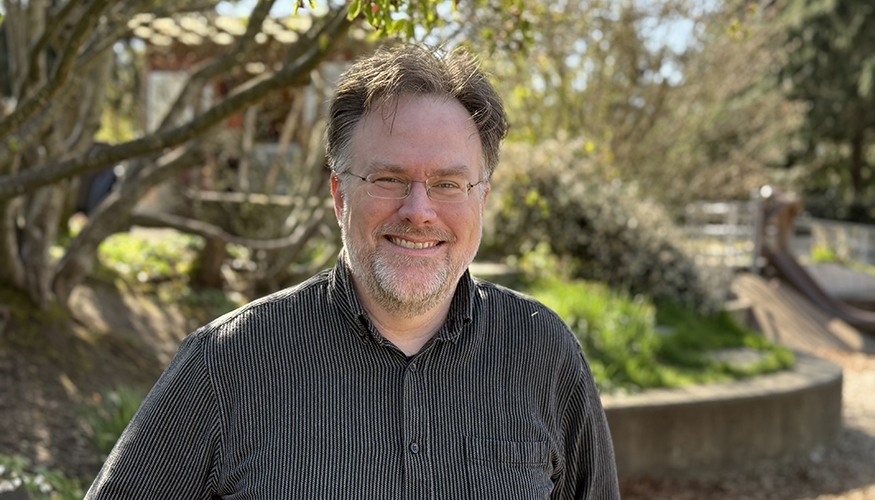
In a March 2025 global ranking of research productivity of political scientists, University of Washington professor Christopher Adolph was ranked first globally for recent impact. Adolph is a professor of political science, adjunct professor of statistics, and associate director and core faculty in the Center for Statistics and the Social Sciences.
The ranking, published by PS: Political Science and Politics, also ranked Adolph third globally for overall impact and fifth globally for recent citations, based on data from more than 115,000 articles and 12,000 books from 5,568 faculty members and 178 departments across the globe.
Adolph’s high ranking is largely due to his recent research on COVID-19 policies. From the beginning of the COVID pandemic in March 2020 through the summer of 2021, Adolph led a UW research team that provided detailed data on state policies around COVID, especially social distancing and mask mandates. That data proved critically useful for scientists, mass media, political leaders, and even large business interests.
When mandates on distancing and masks ended, the research shifted to analysis. Joining forces with a large group of contributors at the Institute for Health Metrics and Evaluation (IHME), the team looked at social, racial, or economic factors that affected the spread and mortality of COVID, and the impact of mandates. They also explored the role of politics in the consequences of the pandemic for health, economics, and education. Adolph and his collaborators found social distancing mandates and mask mandates lowered infection rates, and also showed that states run by Republican governments were slower to adopt (and quicker to ease) social distancing measures in the months before vaccines became available.
It’s gratifying to know our work has proven to be such an important foundation for research on the pandemic. This recognition is a real testament to our team’s efforts.
The heart of the project was data on 16,000 different policy decisions made by US states and the District of Columbia from March 2020 to August 2021. This dataset — permanently available at covid19statepolicy.org — remains a vital resource for understanding the causes and consequences of non-pharmaceutical interventions made in response to the pandemic.
“Our team of a few faculty members and many extremely dedicated graduate students in political science and public health started what we thought would be a ‘quick’ project in March 2020 to inform the public about partisan differences in pandemic policy,” Adolph explains. “That effort grew to become a detailed, real-time tracker of state policies through the course of the pandemic. It’s gratifying to know our work has proven to be such an important foundation for research on the pandemic.”
Learning that this work was ranked #1 worldwide for impact, Adolph says, “This recognition is a real testament to our team’s efforts.”
In the same PS: Political Science and Politics assessment of impact, the UW Department of Political Science was ranked second globally for recent impact (first in North America), 12th globally for overall impact (ninth in North America), and 13th globally for recent citations (10th in North America). Departments are ranked in terms of citations to articles published by faculty members, impact factors of journals in which they published, and the number of top publications in which they published, adjusting for the number of faculty in each department.
More Stories

AI in the Classroom? For Faculty, It's Complicated
Three College of Arts & Sciences professors discuss the impact of AI on their teaching and on student learning. The consensus? It’s complicated.

A Sports Obsession Inspires a Career
Thuc Nhi Nguyen got her start the UW Daily. Now she's a sports reporter for Los Angeles Times, writing about the Lakers and the Olympics.

A Healing Heart Returns
In February, the UW Symphony will perform a symphony that Coast Salish elder Vi Hilbert commissioned years ago to heal the world after the heartbreak of 9/11. The symphony was first performed by the Seattle Symphony in 2006.
